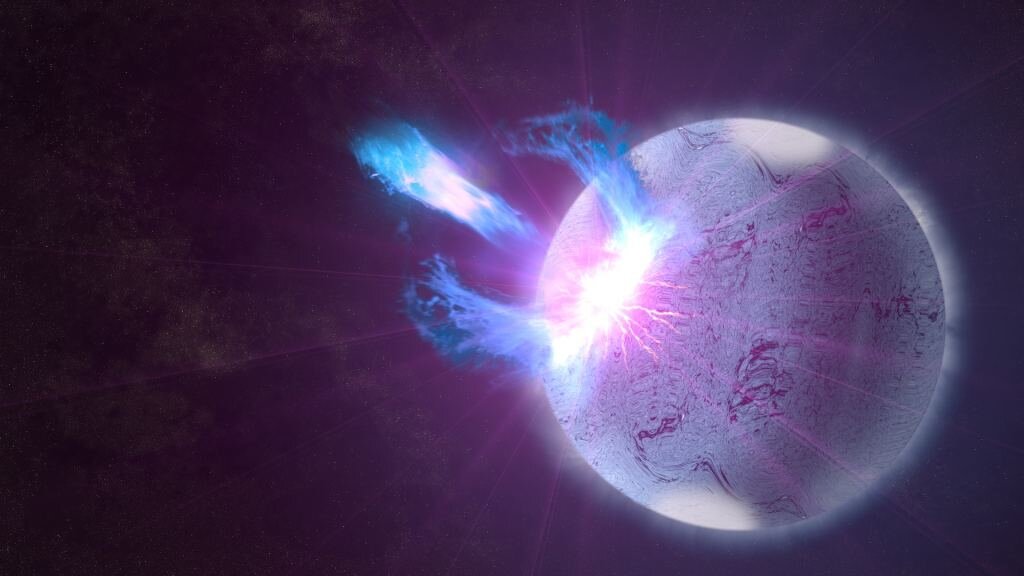Scientists have proposed a new version of how magnetars can generate fast radio bursts. In their opinion, these amazing phenomena occur when a neutron star tears asteroids to pieces and they excite its magnetic field.

Magnetars and fast radio bursts
Scientists have proposed an interesting theory about how fast radio bursts can form. These amazing phenomena were discovered only in the 21st century. They are that within just a few milliseconds, radio telescopes hear an extremely intense signal. At the same time, it indicates the release of energy, which is equivalent to that released by the Sun for thousands of years.
For some time, scientists could not understand what their source was. Relatively recently, the theory has been established that these phenomena generate magnetars, although some still make alternative assumptions. These neutron stars are born with an extremely powerful magnetic field that persists for quite a long time.
Scientists suggest that fast radio bursts are somehow related to the facts of changes in the rotation period of pulsars. The reason for this phenomenon has remained unclear until now, because usually this time remains unchanged for millions of years.
Asteroids
The new theory suggests that asteroids are responsible for fast radio bursts. Since magnetars are remnants of supernova flares, it is assumed that they are surrounded by remnants of planetary systems. So, there should be a lot of space rocks around them.
From time to time, one of the asteroids can fly close enough to a neutron star and its gravitational field destroys it. Since all this happens inside powerful magnetic fields, there is a rupture and reconnection of their lines of force in them.
There is something similar to a solar flare, only many times more powerful, which we perceive as a fast radio burst and which leads to a change in the rotation period. Then the fragments of the asteroid should fall on the star. Scientists believe that this event should also generate bursts that we have not yet heard, but we can register.
According to phys.org
Follow us on Twitter to get the most interesting space news in time
https://twitter.com/ust_magazine

